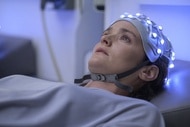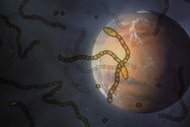Create a free profile to get unlimited access to exclusive videos, sweepstakes, and more!
You should get out more, because being alone for too long will literally shrink your brain

Missing out on that dreaded holiday office party probably won’t affect your brain, but if you’re the type who prefers to hide out alone in your lair for weeks on end, it could lead to shrinkage.
You might also want to think twice about venturing to the South Pole. A recent study on Antarctic expeditioners, who spent over a year at the bottom of the world without much human interaction, found that certain parts of their brains shrank when exposed to such isolation for a certain period of time. Being alone for so long can apparently freeze the brain stimulation that social creatures like us desperately need. This is going to be something to keep in mind as we look towards even more remote territory like Mars.
“To evaluate the effects of physical and social deprivation on the hippocampus, we conducted a study involving persons who had participated in polar expeditions, which are characterized by environmental monotony and prolonged physical and social isolation,” said space medicine researcher Alexander Stahn, who is also an assistant professor of medical science in psychiatry at UPenn, in the study recently published in The New England Journal of Medicine.
While animal studies have shown that being alone for way too long is detrimental to the brain, this is something that has not been studied much in humans. This is why the Antarctic research station ended up being the perfect built-in lab for Stahn and colleagues to study the detrimental effects of extreme isolation in humans. Nine expeditioners were studied before and after 14 months of being mostly alone, with limited human interaction from their few peers. Their brains were imaged by MRI scans before and after the mission (except for one who could not undergo an MRI). What Stahn’s team found was unnerving.
MRI results from eight of the nine expeditioners found that the volume of the dentate gyrus of the hippocampus went down significantly after 14 months in the middle of nowhere. This is such a big deal because the dentate gyrus is critical when it comes to cognitive processing and forming memories, because the hippocampus is the part of the brain whose main functions involve learning and memory. Even worse, other regions of the hippocampus also shrank (though not as significantly as the dentate gyrus), and so did gray matter, which plays a major role in processing information.
As if you need another reason to get out more often, along with the shrinking dentate gyrus, there was also a decrease in brain-derived neurotrophic factor (BDNF). BDNF also affects—surprise—memory and learning, and also supports the development, survival of and regeneration of neurons. The subjects' performance on cognitive tests after those 14 lonely months plummeted.
“Variations in physical and social environments influence hippocampal plasticity. The characteristics of the expedition (i.e., the restriction to a single living and work space, limits on the exposure to varying and complex hippocampus-relevant stimuli, and social interactions that were limited to a small group of people for a prolonged period of time) may have mediated the reductions in BDNF concentrations and related volumetric brain changes,” Stahn and colleagues concluded.
While there is definitely more research to be done beyond just nine people, it’s one more factor besides killer radiation and microgravity that could affect humanity’s future in Mars and deep space. That really gives future space expeditioners something to think about.


























